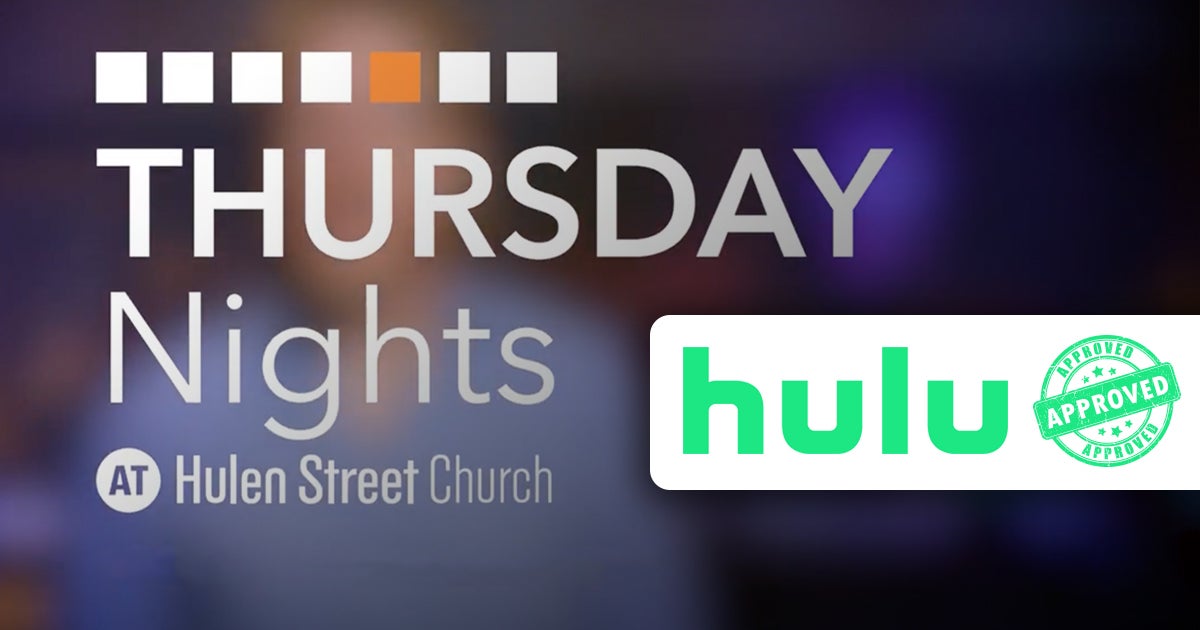
by Jorge Gomez • 3 min read
On Wednesday of this week, Hulen Street Church in Fort Worth, Texas got some great news. The church will be able to promote and advertise its Thursday night service on Hulu.
Because a lot of people in the local area work on Sunday, the church recently began hosting a service on Thursday nights. The church created a 22-second video ad with Pastor Wes Hamilton extending a short invitation for people to attend.
Facebook, Instagram and Google all approved the ad to run on their platforms.
But Hulu initially rejected the ad. The company said it violated policies against “religious indoctrination.”
Our attorneys sent a demand letter, explaining that “religious indoctrination” appeared nowhere in Hulu’s published ad policy. We urged the platform to clarify its policy toward religious advertising.
In less than 36 hours, Hulu reversed course and approved the ad.
“We are grateful to Hulu for its quick response to our demand letter and for accepting Hulen Street Church’s ad,” said First Liberty attorney Jeremy Dys. “In the future, Hulu—and others in Big Tech—could avoid these kinds of conflicts by adopting advertising policies that do not discriminate against religious organizations, being transparent about its advertising policy, and applying it fairly.”
Here’s the ad that Hulen Street Church will now be able to run:
Thank you for helping deliver this win for Hulen Street Church.
Your generous support is the reason why we can help houses of worship do what they do best. Every gift you make to First Liberty allows our attorneys to respond quickly—to be First in the Fight whenever a church, synagogue or congregation needs help.
This is incredibly meaningful for Hulen Street Church, who will now be able to reach many more people in the community who want to go to church. Again, thank you for your support.
Hulu did the right thing in this case. Even still, it does seem that censorship of religious content is a growing problem.
Big Tech companies often abuse vague policies to silence free speech and religious perspectives. Many of them are simply not applying their own rules and guidelines evenly. And this very issue has made its way to the U.S. Supreme Court.
This Week: Supreme Court Hears Major First Amendment Case
What happened with Hulu and Hulen Street Church occurred at the same time that the U.S. Supreme Court heard arguments in Moody v. NetChoice and NetChoice v. Paxton. Those cases were heard on Monday, Feb. 26.
Those cases involve state laws in Texas and Florida that would increase transparency and accountability for Big Tech companies. The laws would require such companies to publish their user standards and then apply them fairly.
First Liberty filed a friend-of-the-court brief on behalf of The Babylon Bee, as well as its sibling, Not the Bee, a Christian news website. Their content has been censored and shadow banned, which has led to decreased web traffic to each site.
We argue that accountability is badly needed. Big Tech companies often claim to be “content-neutral” and an “open platform,” yet turn around and silence viewpoints with which they disagree, including religious and conservative viewpoints. Our brief explains that holding tech companies accountable is consistent with federal law and the First Amendment.
Watch our interview with Seth Dillon, Babylon Bee CEO: